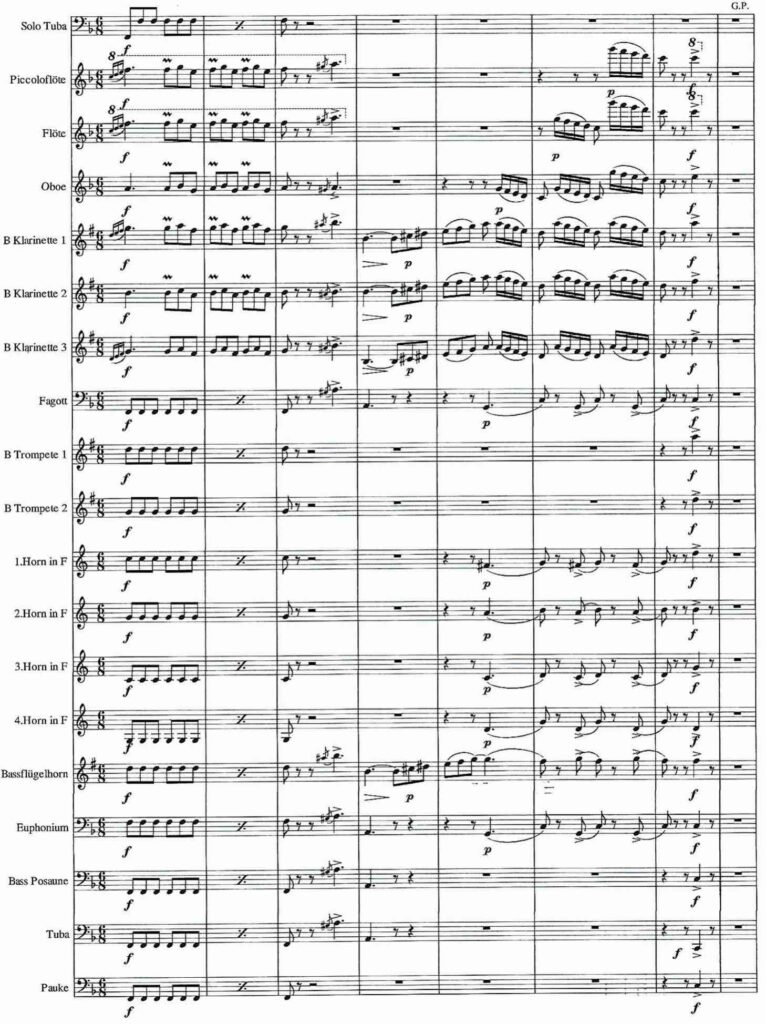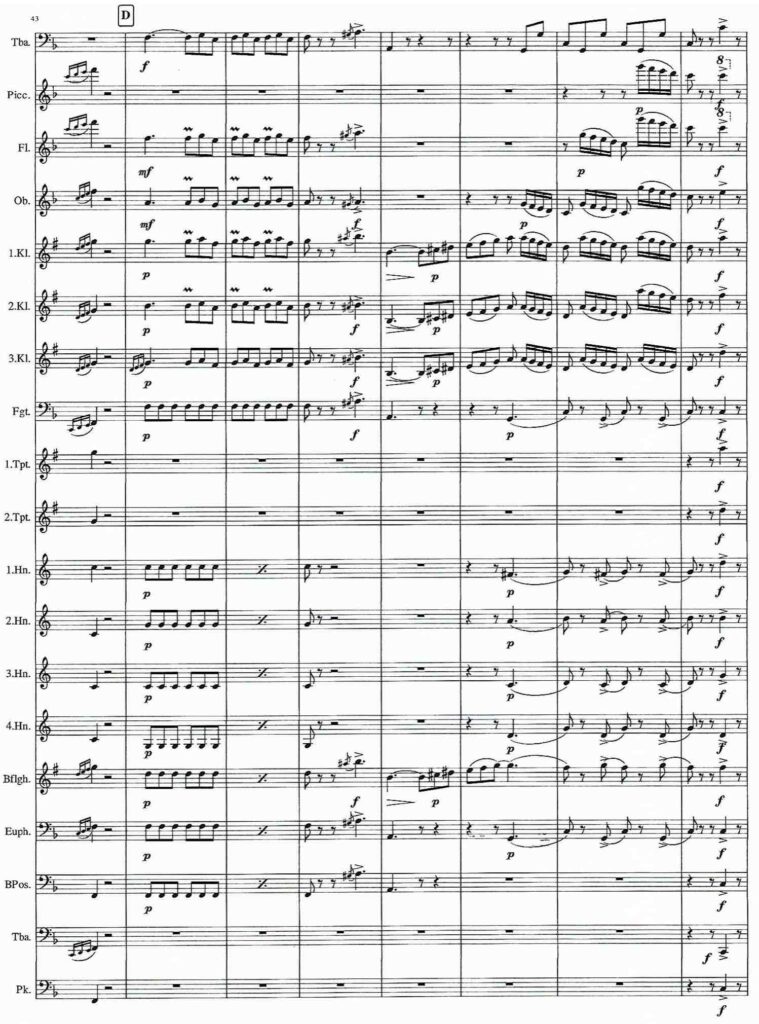Gioachino Rossini (1792-1868) Figaro’s Cavatina from „Il barbiere di Siviglia” for tuba solo with wind orchestra


by Prof. Werner Hackl
Der in Pesaro geborene und in Paris verstorbene Rossini gilt als einer der bedeutendsten italienischen Opernkomponisten des Belcanto. Zum Belcanto Gesangstil gehört neben technisch perfekt ausgebildeter Stimme vor allem ein verzierter Gesang mit vielen Koloraturen. Rossinis Opera buffa “Il barbiere di Siviglia” (“Der Barbier von Sevilla”) gehört weltweit zum Standardrepertoire der Opernhäuser.
Figaros Auftrittsarie „Largo al factotum“ (erster Akt, Szene 2) steckt voller Energie. Erstmals in der Geschichte der Oper kommt hier die hohe Baritonlage zur Geltung. In früheren Werken wurde kaum zwischen Bass und Bariton unterschieden. Dieser Umstand kommt unserer Bearbeitung für Tuba solo mit Blasorchester zugute; die Gesangstimme wurde um eine Quinte tiefer gesetzt, um dem Tubisten ein virtuoses Spiel zu gewährleisten. Diese Arie wurde als „neueste Manifestation der uralten Antriebskraft“ und „Verkörperung des libidinösen élan vital“ bezeichnet.

Born in Pesaro and deceased in Paris, Rossini is considered one of the most important Italian opera composers of bel canto. In addition to a technically perfectly trained voice, the bel canto singing style also includes ornate singing with lots of coloratura. Rossini’s opera buffa “Il barbiere di Siviglia” (“The Barber of Seville”) is part of the standard repertoire of opera houses worldwide.
Figaro’s entrance aria “Largo al factotum” (first act, scene 2) is full of energy. For the first time in the history of opera, the high baritone register comes into its own. In earlier works, little distinction was made between bass and baritone. This circumstance benefits our arrangement for tuba solo with wind orchestra; the voice was lowered by a fifth in order to guarantee the tubist a virtuoso playing. This aria has been called the “latest manifestation of the ancient driving force” and “the embodiment of the libidinal élan vital”.
| sound sample / Tonbeispiel | score/parts PDF download: € 38,- | add to cart / in den Warenkorb |
